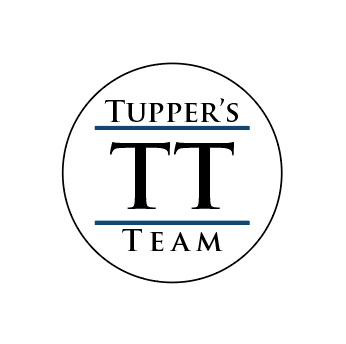Estate Documents Everyone Should Have
What estate documents do you really need to have? Here’s a list and explanation of each. If you’re missing anything or not certain what you have or whether you need more, call your estate attorney, and follow up. If you don’t have an estate attorney, ask your CPA or wealth adviser for a referral. Whether you need a simple document or something much more comprehensive will depend on your circumstances, but most adults should probably have everything on the list below, unless there is a really good and specific reason not to.
 Financial Power of Attorney
Financial Power of Attorney
This is a key document for everyone. Whether you just turned 18 and are now an adult (parents or others won’t just be able to sign anything for you), or you are further on in years and have complex trusts and a range of other documents, you probably should have a power of attorney. This is a legal document in which you designated a person (called “agent”) to be able to make legal, tax and financial decisions for you. If you’re 18 and off to college or the military it makes sense to leave a responsible and trusted person back home a power of attorney so that they can help you out with financial and other matters in a pinch. If you’re in your 60’s, well established and heading off on a month-long cruise, you should have an honest person who has common sense hold a power of attorney. These documents can range from a simple couple of page form that your state’s laws include (called a “statutory power of attorney”) to a complex 20+ page document an estate attorney crafts. Perhaps you might benefit from having both. The simpler documents might suffice for simple situations and people with modest assets. The more comprehensive documents might be worthwhile to facilitate tax planning (or on the opposite end of the wealth spectrum Medicaid planning). These are not “standard” one size fits all documents. Be sure your power is “durable” which means it remains in effect even if you are disabled. Carefully review gift and other tax provisions as they can provide someone with a broad grant of authority. Even if you have a revocable trust (see below) you should still have a power of attorney document as not all assets are always transferred to your revocable trust. So, you need both a power and trust.
Health Care Documents
These come in various flavors, some of which will be reviewed below. The different forms may seem a bit redundant, and even overlapping, but the manner in which the law has developed might suggest that you have all of the relevant ones on the list below despite that. But that is a question you can pose to your estate attorney as the decisions might vary depending on state law, legal customs in your area, and most obviously, based on your needs.
HIPAA Release: HIPAA stands for Health Insurance Portability and Accountability Act. This might be a relatively short document that authorizes a person you name (also called your “agent”) to have access to medical records and to communicate with your medical providers. Without this release medical providers may not be willing to disclose information to anyone other than you. This might be a standard form for your area or that a medical provider gives you. But read and understand what you are signing. There are lots of goofy forms that miss important points, or that have overbroad provisions. If an insurance company, for example, gives you a HIPAA release so that they can check your records, you might want to review it carefully to be sure that you are only giving them access to records they need and for the specific purpose involved.
Living Will: This is a statement of your health care wishes and might contain a lot of personalization. If you have specific requests for burial or funeral instructions, that can be reflected in your living will. If you have (or do not have) religious preferences for how your medical care should be administered, withheld or withdrawn, that should all be explained in this document. What wishes would you have for end-of-life treatment? Some people refuse to sign living wills because they believe that living wills inherently violate their religious beliefs. Some, perhaps many, forms actually may. But that is the point of a living will – to communicate your wishes. So, do not avoid signing a living will for fear of that, just make sure it clearly reflects and respects your religious preferences. If you have a significant known health issue, you might want to reflect specifically whether or not you might wish experimental or other treatments. Nutrition and hydration are an emotional decision for many and should be addressed. Do you want nutrition and hydration withdrawn if you are terminally ill and it is appropriate? You might instead believe for religious, philosophical, or other reasons that you want nutrition and hydration provided no matter what. Then state that. You should discuss these types of issues with your medical provider as many people do not realize what nutrition and hydration might entail in terms of surgical procedures, etc.
Health Care Proxy: This is also called a medical power of attorney and is a vital document for any adult to sign. If you designate a person to make your health care decisions (“agent”), and successors (“successor agents”) they can make decisions with the guidance of your personal instructions provided in your living will. That can avoid the impasse of medical providers and family members not knowing what to do, what you might want or who you would want making decisions. On This is Us, Rebecca held a family meeting and informed the family that she wanted Kate to make her medical decisions. It also seemed that she had met with an attorney and documented that. The document she would have used would have been a health care proxy. The difficulties and seriousness of the decision was evident from the episode. Very real. You should also carefully review the powers given to your agent. Are they sufficient to meet your wishes? Are they constrained or limited to reflect any religious or philosophical views of these matters? Might you authorize your agent to change your domicile to another state in case that facilitates having the health care decisions you might wish? For example, assisted suicide is legal in only about 10 states so if that is something you do or may desire, you might want to authorize the agent to move your domicile. Changing domicile also may have profound legal and tax implications, so should it be your health care agent, or your financial agent empowered with that decision making authority? Do you want to be an organ donor, and if so, to what extent?
Physician Order for Life Sustaining Treatment (“POLST”): This is a document intended to reflect health care decisions for people with serious illness and frailty. In contrast to a living will and health care proxy, this document is intended to be created with your physician and is made a part of your medical record. Do be careful that you various health care documents are not contradictory. For more information you should visit polst.org. Some call this a portable medical order. A POLST is quite important as the process of getting a POLST document will assure that you have discussed a range of medical decisions, your condition, and prognoses, etc. with your physician, to assure the care decisions you want. That process may itself help give you better quality of life.
Child Emergency Medical Form: If you have a minor child and you as the parent will be traveling or otherwise away, there is no legal document that can be signed by the minor as to medical care. Appointing a guardian for a minor child for a short absence makes no sense. You might consider documenting a person you designate as an agent in your stead to make decisions in an emergency and also provide key medical, insurance and other information to be readily available in your absence.
Will and Revocable Trust
A will is a legal document, signed with all the formality required by your state law, that states where your assets should be distributed on your death, who should be guardian for your minor children if you have any, who should be in charge of administering your estate (called “executor,” “personal representative,” etc.). If your will is the only dispositive document (i.e., you don’t have a revocable trust) then your will should include many different provisions to address a wide range of matters, including the points below. If your documents include a revocable trust then your will might be (but not always) a shorter and simpler document that pours assets into your revocable trust. A revocable trust is a contract between you as the settlor creating the trust, and the trustee managing the trust. That might be you, or you and others as co-trustees, or if you are on in years or have health challenges you might name other people, even a bank or trust company. Many revocable trusts are created to avoid probate since assets in such trusts should not be subject to court supervision, like assets that pass under your estate, and which are governed by your will. But that is short-changing a powerful planning tool. Revocable trusts might provide other even more significant benefits. If you are in advanced years or have cognitive or other health challenges your revocable trust can be a powerful and safer tool to help manage your financial affairs than just relying on the power of attorney above. You might name a co-trustee, a trust company as a successor, a trust protector who can monitor all the trustees, and more. Using a co-trustee and trust protector creates what might be important safeguards. Depending on your circumstances, you might mandate in your revocable trust that an independent care manager (i.e., not a care manager giving you services regularly) must interview you annually, or perhaps quarterly, in your residence, and issue a written report to the trustees, trust protector and even named family members. That can create another powerful safeguard for you to protect you from elder abuse, etc. You want to be sure that if you include a revocable trust in your plan you use it for as many of the benefits as it can provide you.
If you bequeath money you might want to specify and provide all details of trusts to which that money should be bequeathed as that will help protect your heirs from their own irresponsibility, lawsuits, divorce, and possibly taxes. If your estate is larger your will or revocable trust should include a number of estate and even income tax provisions. That though is beyond the scope of this article discussing documents almost everyone should have.
Beneficiary Designations
If you have retirement plan assets (IRAs or otherwise), life insurance, etc. you will have to complete a beneficiary designation form identifying who should inherit those assets. Too many people treat these lightly, but they are vital and often complex documents. For many people, beneficiary designations can determine how most of their wealth passes on their death. For some people, the manner in which their assts are owned and how beneficiary designations are completed, may govern all of their wealth. That would avoid the need for probate (even without a revocable trust). If you have a lot of wealth, or a beneficiary with challenges of any sort, you might want to supplement the beneficiary designations with trusts that serve as receptacles to hold distributions of retirement assets on your death, rather than pay those funds outright to the beneficiary you designate. That gets complicated and can have legal and tax implications.
In many situations, people sign beneficiary designations for ordinary bank and brokerage accounts. That may be fine, and it might enable you to avoid probate. It also may be a disaster as then those funds avoid your will or revocable trust and many not pass in the manner you wish. Also, assets passed in that manner may not pass to trusts that protect your heirs.
While beneficiary designations forms are so common and viewed as being “boilerplate” they are anything but. There are lots of mistakes that can be made in these seemingly simple documents. For example, if you divorce, have you updated all your beneficiary designations? If not, your current heirs might be surprised to find that your ex gets the dough, not them. If you have a long list of heirs, e.g., 11 nieces and nephews, are they listed properly? Did the form or computer system truncate your entries only listing 10 family members? Is your beneficiary designation clear as to what happens if a new niece is born, or one dies? Often these important considerations are overlooked and can lead to bitter fighting later.
Deeds and Other Documents of Title
Most people might not consider a deed or bank account opening form to be part of their estate documents, but they absolutely are. If you own a house or bank account ITF – in trust for, or POD – pay on death to, or joint ownership, on your death the assets will pass to the person named. Simplistically, that might be a good thing as it is a cheap way to avoid probate without a lawyer or a revocable trust. But it can also wreak havoc with your dispositive intent. Here’s a common example.
Example: You have three kids. Two you get along with and one is a bum. One of the two you get along with is a saint and cares for you and helps you with all your bills and other chores. But you have decided that you wish to leave assets to all three children equally to hopefully avoid any fights after you die. All your assets consist of bank and brokerage accounts. So, you set each account up as joint with a different child so each will inherit asset inexpensively, without probate or hassle. For the child who is your caregiver and pays all bills, in many cases he ends up doing that using the account their name is on. Now, when you die, the kid who took care of you, devoted their life to you, inherits the least. Also, these joint accounts are inherited outright with no trusts to protect the assets. Your bum kid gets into debt and within a month of your dying all of their inheritance is dissipated. Your final good kid gets divorced after inheriting from your estate and depositing funds into a joint account not realizing their spouse was ready to leave. That is a cheap plan without a lawyer, but not a laudable result.
Other Stuff You Might Need
The scope of estate documents can be broad, but the purpose of this article was to highlight key documents most need. Some of the other documents some people might need are noted here briefly just so you realize that there may be more documents for you. If you are seeking to protect your assets from a future divorce, lawsuits, malpractice claims, etc. you might have one or more irrevocable trusts created and perhaps entities, e.g., one or more limited liability companies (“LLCs”). Common planning is to have different assets owned by different LLCs and have the LLC ownership interests (called “membership interests”) fractionalized between various trusts. If you have a family business you might need a shareholders’ agreement, buy sell agreement, bylaws, and more. If you have a private foundation you might need to file Form 990PF with the IRS, have a written conflict policy and more. If you own large life insurance coverage you might what the policies held from initial purchase in an irrevocable life insurance trust. If you have children, grandchildren, or others you care about, you might want to set up 529 college savings plans for them. The list goes on.
RELATED TOPICS
- 01.
- 02.
- 03.
- 04.
- 05.
ESTATE PLANNING WORKSHEET - 06.
FILLABLE FREE ON-LINE WILL DOCUMENTS
- 07.
FREE DURABLE POWER OF ATTORNEY FORMS
- 08.
MEDICAL POWER OF ATTORNEY FORMS
- 09.
- 10.
~Forbes.com
Selling Your Home?
Get your home's value - our custom reports include accurate and up to date information.




